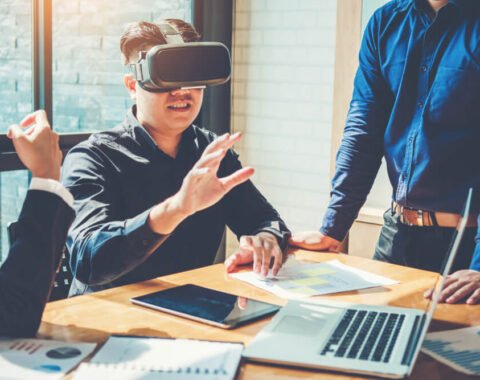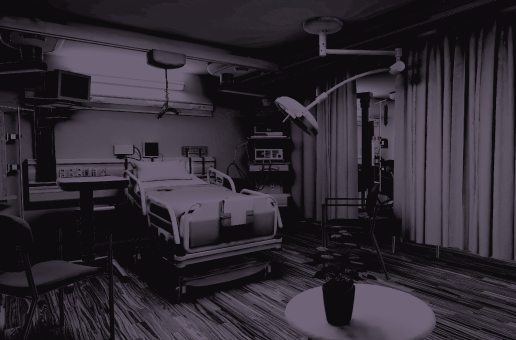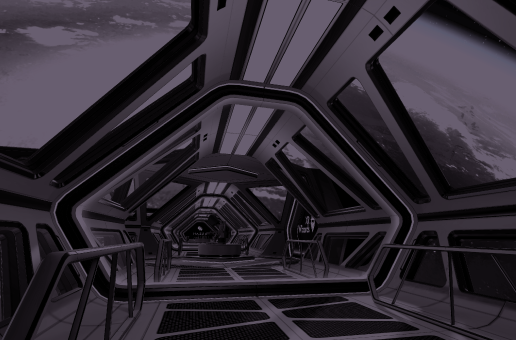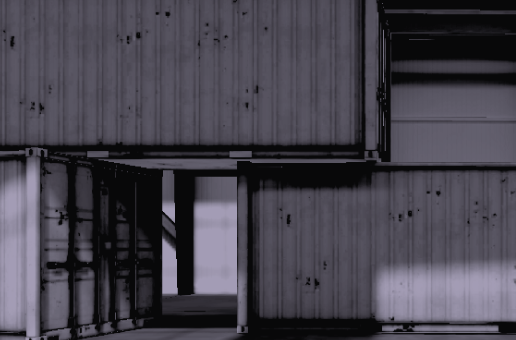Table of Contents:
Did you know that the use of VR in the retail and marketing sectors is expected to generate almost $2 billion by 2022? Yes, that’s right. Statistics show that two thirds of internet users are interested in VR solutions for business and over 60% of people said that such technologies would change the way they shop. The use of VR software is moving past first-generation devices into moderate adoption. As a result, retailers are fast recognizing VR in retail as a transformational tool that can create engaging customer experiences. In this article, we will focus on the importance of deploying VR in retail and the benefits of virtual reality for retailers.
The benefits of virtual reality for business
Through the use of VR, stores can test an almost infinite number of layouts to see which will be best for their business. There are numerous advantages to using a VR environment rather than experimenting in an actual physical space. You don’t have to move around heavy shelves or other items and your employees and products are safe from possible accidents. Finally, less time is required to transition to a new layout.
On top of that, virtual reality in retail goes beyond its inclusion in-store. You can use it for research purposes and for the planning phase. Displaying (and presenting to clients) various products and services through VR tools can allow you to understand whether your ideas will be successful before they are released into physical stores. It is a great way to understand what your customers expect and how they want to interact with your brand. Virtual reality retail stores offer the competitive advantage of being able to appeal to customers in new and high-end ways.
Thanks to virtual reality in retail, you can unleash the potential to create unique brand experiences that drive conversions and repeat visits. The only thing you need to remember is that the user must stay as immersed as possible to get the most out of the experience. Currently, the most popular ways VR is used in retail are the following:
- Personalized products – using virtual reality in retail, you can create a custom order based on a customer’s imagination. You can easily produce virtual versions of the desired product.
- Personalized marketing and product discovery – you can personalize your marketing activities by coupling them with your in-store navigation. You can display personalized offers on products through VR based on a customer’s purchase history. It has been proven that personalized offers have higher conversion rates and improve the shopping experience. With VR, online retailers can simulate an immersive environment customers wouldn’t otherwise experience. It’s a compelling real-time experience akin to real life.
- Reduced returns – VR in the retail gives customers the ability to more accurately visualize products, which usually leads to confidence in their purchasing decisions.
- Online marketing activities – launching new products might be a challenge today. Many brands rely on the physical touch and feel of products, and virtual reality is a great solution for those who cannot visit stores to examine products physically. The VR experience can be a digitally enhanced experience of the product with which a customer can interact from their homes. Such VR in retail increases brand loyalty and promotes the brand.
- Collecting customer analytics – VR platforms allow store owners to collect data on how customers interact with their products. Such virtual reality in retail gives retailers valuable insights into their marketing efforts.
To sum up, virtual reality in retail is a great opportunity for businesses. It allows you to optimize costs – a VR store doesn’t require a physical location. You don’t need to worry about electricity bills etc. No interior design, no fancy accessories or gadgets, no more boring online stores with their silly banners – it’s all about the virtual world. You can make the most of both a traditional and online store. VR stores enable you to create a design from scratch, and everything is fully customizable – you can adjust every single element to your needs. Last but not least, using virtual reality in retail can help you avoid the costs of possible damage. Your virtual products cannot be damaged in any way, no cleaning staff are needed and problems with physical users are eliminated. Literally, 100% eliminated.
Train the best and work with the best
What happens behind the scenes is equally important as what the user sees. Virtual reality should make the store operate like a well-oiled machine. It’s a great way to increase productivity and efficiency, for example, during training and onboarding. You can train new employees on proper procedures more easily than ever before. You can identify any possible redundancies without impeding customers, as well as performing collaborative assessments while experimenting with new workflow possibilities. Training becomes a cinch – you just place your new employees in virtual scenarios which help them to quickly become familiar with their roles and get a sense of the company setting and culture.
Finally, they can begin acclimating to their new positions by, for example, landing in a situation where they must navigate how to appropriately deal with a disgruntled or difficult customer. Interestingly, virtual reality is believed to be one of the most efficient learning methods. Learning about new products and their specifications has become easier than ever, as has conflict resolution and developing empathy or an understanding of the customer. One really cool thing is that a VR salesperson is always impeccable. They have perfect hair, fresh clothes etc. On top of employee training, VR in retail also enables you to train your customers. They can learn about your company and its products, and they can try them out before purchasing.
VR in retail – the user experience
It turns out that virtual reality retail stores can provide customers with a unique in-store experience that they can get at home. Around 80% of retail customers declare that they are eager to use VR and AR apps to enhance their shopping experience. While online shopping has been taking up an ever-increasing share of the retail market, companies are forced to adapt to and accommodate new trends. More and more often we see companies offering VR goggles so that customers can interact with a virtual recreation of their store.
Here is how VR in retail is revolutionizing the user experience
- It allows customers to become familiar with products without even leaving the house. Have you heard of the North Face virtual reality experience that allows customers to virtually climb the peaks of Yosemite while testing out their new outdoor gear? This is a unique experience that aligns with their products. For a car purchase, VR might mean exploring the dashboard or taking a virtual test drive. Visualizing products online with an added element of personalization lets customers fully engage in the shopping experience, allowing them to get more of a feel for what your business is about.
- It offers a visual guide for customers to select the products they want and be led to the in-store location. Customers can explore a virtual store or pick up and examine items in 3D before deciding to purchase them. Especially now, during the pandemic, consumers are (and will be for a long time) highly alert and particularly conscious about how they interact with products in bricks-and-mortar stores. For example, they may be reluctant to try on clothes that might have possibly come into contact with others. Virtual stores can help prioritize consumer safety, establishing trust and offering convenience of use.
- It enables users to receive and send feedback regarding products.
Conclusion
Virtual reality offers a unique shopping experience to customers, helping them make better decisions while also saving them time. In addition, VR reduces contact in stores and enables shoppers to have an immersive experience from home, which means the technology keeps them safe. The development of VR has become more and more sophisticated, making it essential for business owners to prepare for the increasing adoption of a technology that will both radically impact future customer experiences and help to increase profits.
Read also about Mixed Reality in Healthcare.








